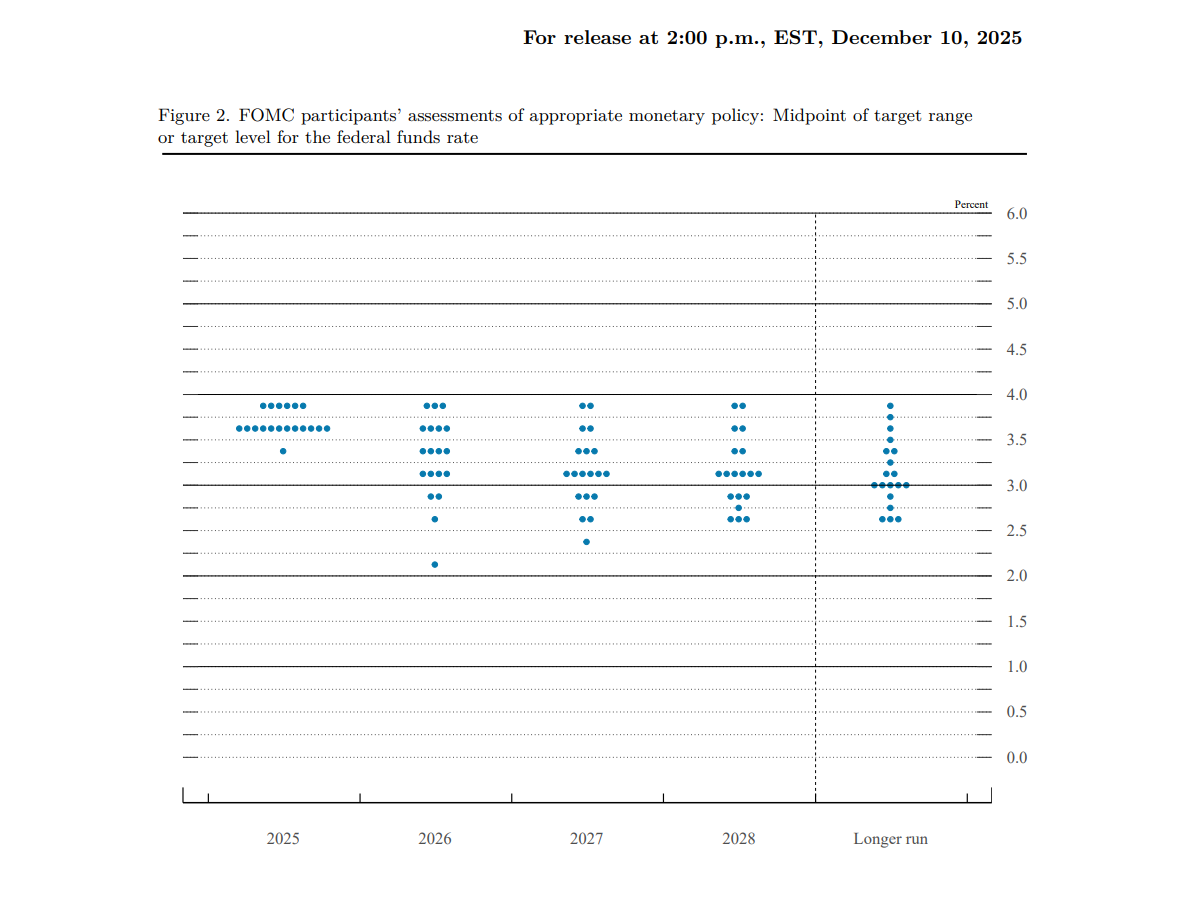U.S. Government Uses Blockchain to Rewrite the Rules of Economic Data Distribution
- U.S. Department of Commerce partners with Chainlink and Pyth to publish key economic data on blockchain, modernizing public data infrastructure. - Real-time indicators like PCE, GDP, and sales data will be distributed via Ethereum, Solana, and Bitcoin, aligning with traditional reporting schedules. - Chainlink Data Feeds and Pyth’s verification system enable DeFi, prediction markets, and automated trading to access tamper-proof macroeconomic insights. - The initiative aligns with the "Deploying American
The U.S. Department of Commerce has announced a groundbreaking collaboration with blockchain oracle providers Chainlink and Pyth Network to bring key economic data onchain, marking a significant step toward modernizing public data infrastructure. Under the initiative, real-time economic indicators—including the Personal Consumption Expenditures (PCE) Price Index, real Gross Domestic Product (GDP), and Real Final Sales to Private Domestic Purchasers—will be published via blockchain networks, offering increased transparency and accessibility. The data will be made available across multiple blockchain platforms such as Ethereum , Solana , and Bitcoin , with updates occurring monthly or quarterly in alignment with traditional reporting schedules.
The initiative leverages the capabilities of Chainlink Data Feeds and Pyth’s decentralized data verification system, which already serves over 600 blockchain applications across 100 networks. Pyth will initially release quarterly GDP data dating back five years and plans to expand to additional economic datasets in the future. The move is expected to benefit a range of blockchain-based applications, including DeFi protocols that adjust risk parameters based on macroeconomic trends, as well as prediction markets and automated trading strategies that rely on real-time data inputs.
Commerce Secretary Howard Lutnick emphasized the strategic value of blockchain in enhancing the integrity and accessibility of economic data. “Secretary Lutnick and the Department of Commerce’s visionary stance on data innovation and willingness to embrace blockchain technology is positioning the U.S. as a world leader in finance,” Pyth stated in a blog post. The initiative aims to create a more tamper-proof and transparent system for distributing government data, reducing reliance on centralized intermediaries and fostering public trust.
The Department of Commerce’s move is part of a broader federal push to integrate blockchain into government operations. Existing blockchain pilots include Treasury’s blockchain-based grant tracking system and the Commodity Futures Trading Commission’s evaluation of tokenized collateral in regulated markets. The initiative also aligns with the “Deploying American Blockchains Act of 2025,” which seeks to promote U.S. leadership in blockchain applications and establish a dedicated program under the Department of Commerce for evaluating the use of distributed ledger technology across federal agencies.
The announcement has had a measurable impact on the crypto markets, with Pyth’s native token (PYTH) surging nearly 50% and Chainlink’s LINK token rising over 5% following the news. This reflects investor confidence in the potential of blockchain oracles to facilitate broader financial innovation and institutional adoption. By bringing economic data onchain, the U.S. government is not only expanding the utility of blockchain for public data but also reinforcing its position as a global leader in digital transformation.
The collaboration underscores the growing importance of blockchain in redefining traditional financial infrastructure and highlights the potential for decentralized systems to support more transparent and secure data ecosystems. As the Department of Commerce works with Pyth and Chainlink to refine the onchain data distribution model, the initiative could serve as a blueprint for other federal agencies looking to modernize their data infrastructure.
Source:

Disclaimer: The content of this article solely reflects the author's opinion and does not represent the platform in any capacity. This article is not intended to serve as a reference for making investment decisions.
You may also like
Full text of the Federal Reserve decision: 25 basis point rate cut, purchase of $4 billion in Treasury bills within 30 days
The Federal Reserve cut interest rates by 25 basis points with a 9-3 vote. Two members supported keeping rates unchanged, while one supported a 50 basis point cut. In addition, the Federal Reserve has restarted bond purchases and will buy $40 billion in Treasury bills within 30 days to maintain adequate reserve supply.

HyENA officially launched: Perp DEX supported by Ethena and based on USDe collateral goes live on Hyperliquid
The launch of HyENA further expands the USDe ecosystem and brings institutional-grade margin efficiency to the on-chain perpetuals market.
Elon Musk at the Center of an Unprecedented Showdown with the EU

Stablecoin Payments: Stripe’s Tempo Blockchain Launches Public Testnet
